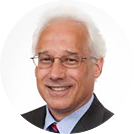
Devon Cancilla is the vice provost for Online Learning at the University of Missouri Kansas City. His particular interests are in open-science initiatives and how the online environment can be used to make laboratories and science more accessible. He was awarded the Online Learning Consortium′s Effective Practice Award and the 2012 Outstanding Achievement Award in Online Education for his work in the development of online labs through the Integrated Laboratory Network initiative.
Abstract
This article provides a brief introduction to the Online Laboratories stream.
KEY WORDS: summary, introduction, online labs
The objective of this stream is to highlight the extraordinary innovations occurring in online science education and to provide readers with practical examples necessary to help them effectively incorporate these innovations into their teaching practice. Almost without exception, the innovations that will be highlighted in this stream are driven through the use of technology. Why is this? Simply put, technology provides access, access promotes innovation, and innovation drives change. The goal of this stream is to be a catalyst for change in online science and laboratory-based education.
Why is this stream needed and how will it be developed? Back in 2007 while speaking about undergraduate science and laboratory education in the United States, Myles G. Boylan of the National Science Foundation stated.
In almost every discipline, I could point to a variety of really effective, wonderful sets of instructional materials and instructional practices, and say that if we could magically click our fingers and get everybody using them, there would be a huge improvement in undergraduate education that would happen instantaneously, but we′re nowhere near that (Chronicle of Higher Education, The Tough Road to Better Science Teaching, August 3, 2007).
Recognizing that innovation will not happen instantaneously, I believe there is a real need for a resource where online practitioners can exchange ideas, present works in progress, and show both their achievements and failures. In short, there is a need for a community of practice and the time now is right. We are witnessing the development of an incredible number of crowdsourced and citizen science initiatives, many of which will be highlighted in this stream. So why not a crowdsourced community of practice focused on online science education? That is my hope for the development of this stream: that a community of practitioners will develop who will be engaged and willing to share their ideas, and where the community will have input into the development of the stream and its content.
I also believe it is important to show both the ideas that work and the ideas that do not seem to work. The important point is the ability to explain why and provide the community a chance to contribute to that explanation. This means that the papers appearing in this stream may not always fit the mold of a traditional academic journal. Papers will be peer reviewed but may not represent the end point of a definitive study. For example, it may be important to highlight a particular milestone in a multiyear project or a particular observation that may change the direction of a project. There may also be the case where the author acts more like a correspondent, bringing together the work of others in a way that provides a reasoned approach or argument. The stream will be a continuous work in progress that will evolve based on the needs of the community.
At the end of the day, we will have met our objective when we see a growth in the number and breadth of submissions related to science education. Our goal will be achieved when we observe the development of a vibrant, innovative community of practice actively engaged in bringing about change in online science education.
Comments
Show All Comments